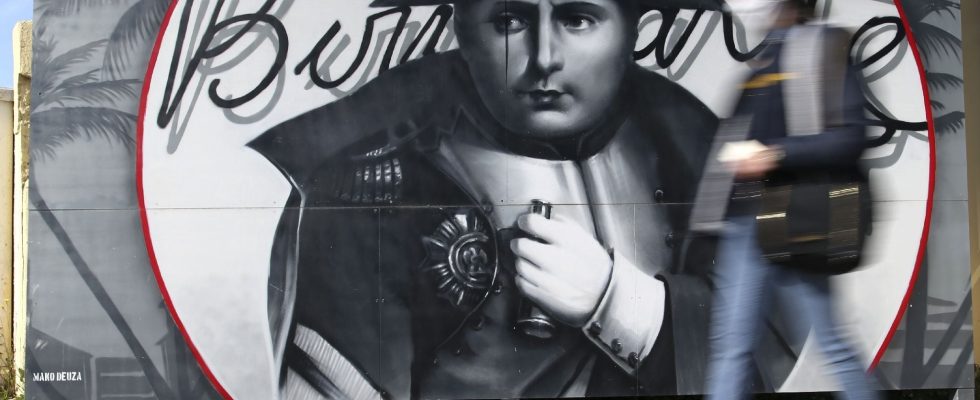The passion of the French for Napoleon cannot be denied, note the British media. In Fontainebleau, one of his bicorns sold for 1.9 million euros at an auction on November 19. “He owned around 120, of which only 20 are believed to survive, most in private collections,” remind her BBC. But more than his hat, it is the film dedicated to him by director Ridley Scott – released on screens this week – which generates the most articles evoking “the emperor of the French”.
Never mind that the “biopic” portrays the rise and fall of Bonaparte rather negatively: “Far from rejecting the Hollywood treatment, French historians, film clubs and Napoleonic re-enactment societies see in the film an opportunity to address the controversial history of Napoleon and make it accessible to a wider audience”, reports the correspondent in Paris of GuardianAngelique Chrisafis.
Between previews in costumes and debates with historians, enthusiasts and curious people found a new opportunity to talk about Napoleon, barely two years after the commemoration of the bicentenary of his death. “If some see him as a military leader and a political strategist who laid the foundations of French administration, others see him as a warmongering tyrant who reintroduced prohibited slavery after the Revolution,” continues the journalist.
South of the Pyrenees, he is perceived above all as a bloodthirsty oppressor. La Vanguardia notes moreover with regret that “Spain is one of the great ellipses” of the film, which forgets “the war of independence” to free itself from Napoleon’s armies. Ironically, the Catalan daily was able to measure the fascination exerted by the emperor on the French in the person of Manuel Vallswho came to Barcelona on November 14 to present his book Courage guided their steps. 12 destinies facing History (Tallandier). “When I was little, confided the former Prime Minister, I wanted to be Caesar or Napoleon.”
